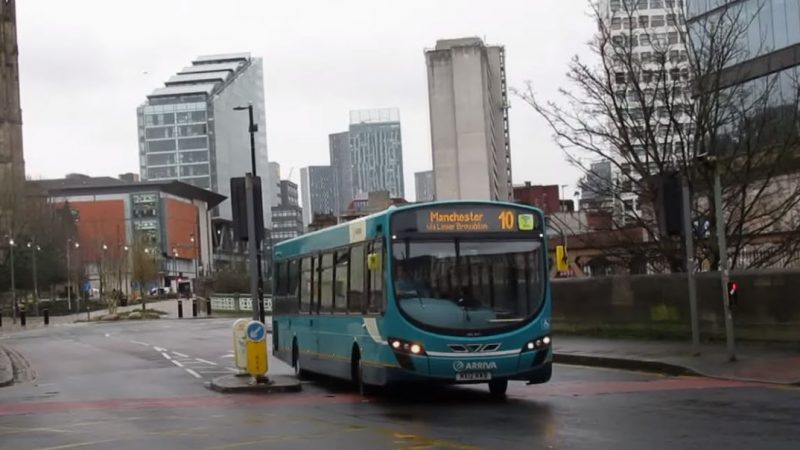'Research shows families on lower incomes are three times more likely to rely on buses compared to more affluent households. For many, buses aren’t a choice – they’re a necessity for getting to work, attending medical appointments, or simply participating in city life.'

In another unpopular move by Labour, the bus fare cap will increase nationally from £2 to £3 on January 1, 2025. The prime minister said the money to fund the £2 cap would run out at the end of 2024, and that the government would not be able to keep it at the same level.
The decision came despite heavy lobbying from Labour’s re-elected mayors to keep the cap in place, and has attracted criticism. Branded the “bus tax,” critics argue it will discourage bus use and put extra financial strain on those who rely on public transport.
However, under devolution, local authorities and metro mayors can fund their own schemes to keep fares down.
Here’s the regions that will maintain the £2 cap after the end of 2024, when it will be raised to £3 nationally.
Greater Manchester
In Greater Manchester, mayor Andy Burnham has confirmed that the £2 fare will remain in place throughout 2025, with a mid-year review. The decision is part of an ongoing effort to bring buses under public control through the Bee Network.
“We will proceed with our plan to introduce a new simpler, flatter fare structure based around a £2 single fare,” said Burnham.
Liverpool City Region
In Liverpool City Region, mayor Steve Rotheram has extended the £2 fare cap until September 2025. Bus travel is the most popular form of public transport in the Liverpool City Region, accounting for over 80 percent of all journeys made every day. More than 1.6 million £2 tickets are bought every month.
Rotheram’s move builds on his commitment to keeping bus travel affordable for all residents, as the region transitions toward a franchised bus network.
Rotheram said: “Affordable and reliable bus services are key to ensuring that everyone, no matter their income or background, can get to work, access education, or simply enjoy all that our region has to offer.
“When I was re-elected I made a commitment to keep bus fares in the region as low as possible, and I’m proud to deliver on that commitment.”
West Yorkshire
Similarly, in West Yorkshire, mayor Tracy Brabin announced the £2 fare cap will continue until March 2025. Brabin said the extension is part of efforts to improve connectivity across the region, ensuring affordable travel for all, while supporting regional growth.
“Our mayors’ fares scheme has helped get more people using buses in West Yorkshire,” she said.
Cambridgeshire and Peterborough
In Cambridgeshire and Peterborough, the £2 cap will remain until March 2025, the region’s mayor Dr Nik Johnson confirmed this week. He said:
“Government took an important step in supporting bus users by putting a £3 fare cap in place to the end of 2025. But as a Combined Authority, we also had the ability to act.
“Keeping fares as low as possible for our residents maintains our commitment to better buses, helping people get to places of work, education and leisure more affordably, and encouraging people to choose public transport.”
London
Operating under a different system, London buses are excluded from the broader fare cap as their funding is structured differently.
Mayor Sadiq Khan confirmed that while tube and rail fares will increase in 2025, bus and tram fares will remain frozen at £1.75 for the sixth consecutive year, maintaining affordability for commuters.
Politicians in other regions are campaigning to keep the £2 cap.
This week, Zarah Sultana, Labour MP for Coventry South, delivered a 120,000-strong petition to Downing Street, demanding that bus fares are kept affordable.
Sultana notes how the government’s decision to raise the cap to £3 from January 2025, comes despite the cost-of-living crisis being far from over. She said:
“A £1 increase may not seem like that much, but for daily commuters, it could mean up to an additional £520 per year. This 50% fare increase will leave many people worse off and may isolate others entirely from essential services and community support.
“As the Member of Parliament for Coventry South, I’ve seen firsthand the positive impact of the £2 fare cap on my constituents. I know it’s even more critical for those in rural areas, where public transport options are more limited.
“We can all see the catastrophic impact of the climate crisis around the world, and here in the UK. So, it’s more important than ever that we make public transport easier, cheaper and more accessible.”
Brighton, where bus travel is among the highest in the country, is also campaigning for the £2 cap to stay in place. Writing for the Argus, Steve Davis, Green Party convenor, said:
“Research shows families on lower incomes are three times more likely to rely on buses compared to more affluent households. For many, buses aren’t a choice – they’re a necessity for getting to work, attending medical appointments, or simply participating in city life.”
Left Foot Forward doesn't have the backing of big business or billionaires. We rely on the kind and generous support of ordinary people like you.
You can support hard-hitting journalism that holds the right to account, provides a forum for debate among progressives, and covers the stories the rest of the media ignore. Donate today.



